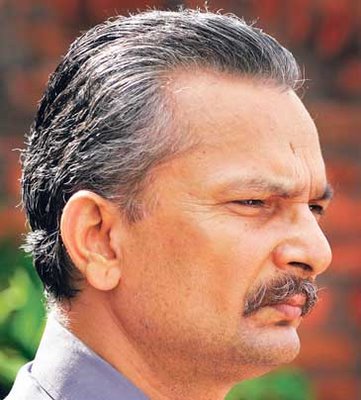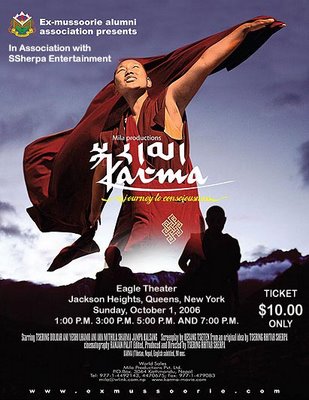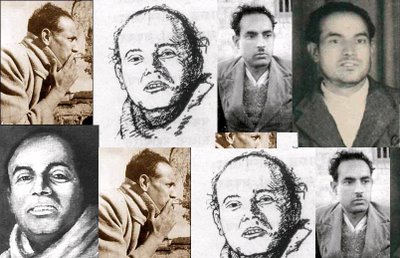
राजेन्द्र महतो
समस्या नागरिकताको होइन, मानसिकताको हो । कानुनी समस्या संशोधन तथा परिमार्जन गरेर समाधान गर्न सकिन्थ्यो तर एउटै समुदाय विशेषका कानुन तथा नीति निर्माताको मानसिकता ठीक नहुँदा समस्या समाधान हुन सकेको छैन । यस्ता व्यक्तिबाट नियम कानुन निर्माण तथा त्यसको सफल कार्यान्वयन हुन सक्दैन । मधेसीप्रतिको सोचमा परिवर्तन नआई देशको आधा आवादी मधेसी समुदायको नागरिकता समस्या समाधान हुनेवाला छैन । मधेसीप्रति सदीयौंदेखि गरिएको शोषण, भेदभाव, उत्पीडन समाप्त नहुने हो भने भोलि के होला भन्न सकिन्न । स्थिति कति विस्फोटक हुने हो ? परिणाम के के हुन सक्छ ? सायद शासकले अनुमान लगाएका छैनन् ।
यही नागरिकताको सवाल सद्भावना पार्टीले आफ्नो जन्मकालदेखि प्राथमिकताका साथ उठाउँदै आएको छ । नागरिकता राष्ट्रियतासँग जोडिएको सवाल भएकाले अविलम्ब समाधान भएन भने लाखौं मधेसी राष्ट्रियताको खोजीमा निस्कँदा नयाँ रािष्ट्रयता निर्माण गर्न अग्रसर नहोउन् । यस्तो परिस्थिति नबनोस् भनेर जहिले पनि हामी संवेदनशील तथा चिन्तित छांै । एकै चोटीमा नागरिकता समस्या सदाका लागि समाधान हुनुपर्छ । त्यसपछि मुलुकमा कसैले पनि 'नागरिकता' समस्या उठाउन नपरोस् ।
नागरिकता समस्या समाधान गराउँदा कुनै पनि गैरनेपालीले त्यो प्रमाणपत्र पाउनु हुँदैन । त्यसका लागि आवश्यक दण्ड-सजाय व्यवस्था अनिवार्य हुन्छ । तर गैरनेपालीले पाउलान् भन्ने बहानामा कसैलाई पनि नागरिकताबाट वञ्चित गर्नुहुँदैन । मधेसीको मूलभूत समस्या अर्कै हो । उसप्रति गरिएको राजनीतिक, आर्थिक, सामाजिक, सांस्कृतिक, भाषिक शोषण तथा भेदभावविरुद्ध संघर्ष गरी अधिकार तथा अस्तित्व रक्षा गर्दै सम्मानपूर्ण जीवन प्रदान गर्ने अवसर दिलाउन बाँकी छ । राज्य व्यवस्थाको सञ्चालनमा बराबरका हिस्सेदार बनाउन बाँकी छ । अहिलेसम्म मधेसीले यो मुलुकमा एउटा शरणार्थीको जीवनबाहेक के पाएको छ ? त्यसैले मधेसी समुदायको असली लडाइँ त अब सुरु हुन्छ जब नागरिकता समस्या पूर्णरूपमा समाधान हुन्छ ।
सरकारले हालै मन्त्रिपरिषद्बाट पारित गरी प्रतिनिधिसभामा पठाएको नागरिकता विधेयकले वर्षौदेखि जटिल रूपमा रहेको नागरिकता समस्या पूर्णरूपमा समाधान गर्न सक्दैन । किनभने मधेसीप्रतिको प्रतिगमनकारी सोच फेरि हावी हुन लागेको छ । भरखरै सम्पन्न ०६२/०६३ को ऐतिहासिक जनआन्दोलनको मर्म र भावना विपरीत मधेसीको नागरिकताको सवाल आउँदा सरकारले ०४६ को जनआन्दोलन सम्भिmन पुगेको छ । र, विधेयकमा ०४६ चैतसम्म जन्मेकालाई नागरिकता दिने प्रावधान ल्याएको छ । ०४६ को आन्दोलन हुँदा त्यसलाई बिर्सेर ०१९ को निरंकुश पञ्चायती संविधानलाई नागरिकताका लागि जिउँदै राख्ने काम गरियो । र त्यहीअनुरूप ०४७ को मा ०१९ को संविधानको धारा ७ लाई राखेर जिउँदो पारियो । यस प्रकार मधेसीको सवाल आउँदा राज्यपक्ष जहिले पनि संवेदनहीन भएर प्रतिगमनतर्फ गएको देखिन्छ । जबसम्म ०४७ को संविधानको धारा ८ र ९ लाई खारेज गरिँदैन तबसम्म यो विधेयक पास भएर पनि लागू हुन सक्दैन । फेरि कुनै बालकृष्ण न्यौपाने संविधानसँग बाझिएको भनी सर्वोच्च अदालतमा नपुग्ने र कानुन खारेज नहुने कुरा छैन ।
विधेयकको दफा ३ ले जन्मको आधारमा नेपाली नागरिकता प्राप्तिको व्यवस्था गर्दै ०४६ चैत मसान्तभन्दा अगाडि नेपालभित्र जन्म भई स्थायी बसोबास गर्दै आएको जन्मका आधारमा नागरिक हुने भनिएको छ ।
अब प्रश्न उठ्छ- ०४६ चैतपछि जन्मेका नेपालीका सन्तानलाई के गर्ने ? एउटा सन्तान ०४६ चैत पहिले जन्म्यो उसले यस कानुनअनुसार नागरिकता लियो तर अर्को सन्तान चैतपछि नेपालमै जन्मेको छ, त्यसको के हुने ? एउटा सन्तान नागरिक अर्को सन्तान अनागरिक ? ०४६ पछि जन्मेका नागरिकका ती युवा सन्तानले पनि ऐतिहासिक जनआन्दोलनमा भाग लिएका थिए तिनीहरूलाई यो विधेयकले दण्डित गर्न खोजेको त होइन ? के जनआन्दोलनको भावना यही थियो ?
दफा ४ मा वंशजको नाताले नेपालको नागरिकता प्राप्तिको व्यवस्था गर्दै भनिएको छ, कुनै व्यक्तिको जन्म हुँदा निजको बाबु वा आमा नेपालको नागरिक रहेछ भने त्यस्तो व्यक्ति वंशजको नाताले नेपालको नागरिक हुनेछ । यो कानुन कुनै नयाँ होइन, यो प्रावधान नागरिकता ऐन, ०२० को दफा ३ को व्यवस्था हो, जुन प्रस्ट नभएकाले गलत व्याख्या हुँदै आएको छ । यसले ४० वर्षदेखि समस्या बढाउने कार्य गर्दै आएको छ । यहाँ 'नागरिक रहेछ' को अर्थ 'नागरिकता प्राप्त गरेको लाई' र नागरिकता प्राप्त गरेको मितिपछि मात्र नागरिक हुनेजस्तो व्याख्या हालसम्म छ । 'बाबुले नागरिकता लिनुभन्दा पहिले जन्मेका सन्तानलाई' यसले नागरिक मान्न प्रतिबन्ध लगाउँछ । मानौं बाबुले कानुनअनुसार ०४६ चैतअगाडि जन्मेको नाताले अहिले नागरिकता लियो । ०४६ पछि जन्मेको त्यसको सन्तानले कसरी नागरिकता पाउँछ ?
त्यस्तै दफा ५ -३) ले जन्मको आधारमा नागरिकता पाउनेलाई 'अंगीकृत' नागरिकता दिने व्यवस्था गरेको छ । त्यतिमात्रै होइन, जुन गरिबसँग केही प्रमाण छैन त्यसका लागि कुनै नागरिकता प्राप्त व्यक्तिको सिफारिसका आधारमा दिने प्रावधान राख्नुको साटो अर्थहीन प्रावधान राखिएको छ ? विधेयकमा तीनजना नागरिकतावालाको सिफारिसले पुग्दैन, उसको नाम मतदाता सूची वा राष्ट्रिय जनगणनामा हुनुपर्यो र त्यसको सर्जमिन मुचुल्का हुनु पर्यो । यस प्रकार कुनै प्रमाण नहुने नागरिकका लागि व्यवस्था हुन सकेन । आधार र प्रमाण जुटाउन नसकेको कारणले नागरिकता समस्या समाधान गर्न कठिनाइ भएको बिर्सिनु हुँदैन । त्यसमा पनि दिने अधिकारीलाई स्वविवेकीय अधिकार दिइएको छ ।
त्यस्तै दफा १२ मा नागरिकता रद्द गर्ने प्रावधानमा आपत्तिजनक व्यवस्था गरिएको छ । विधेयकमा कुनै नेपाली नागरिकले झूटो विवरण दिई 'नेपाली नागरिकता' लिएमा रद्द गर्ने प्रावधान छ । नेपाली नागरिकको निवेदन फारममा कुनै कारणले गलत उमेर ठेगाना वा कुनै विवरणले नागरिकता नै रद्द गर्ने प्रावधान उचित हो र ?
नागरिकतासम्बन्धी मुद्दा अदालतमा जानुको सट्टा प्रशासनमा राख्नु, अदालतमा पुनरावेदन लाग्ने प्रस्ट व्यवस्था नहुनुजस्ता त्रुटिपूर्ण प्रावधान छन् । बदनियतपूर्वक नागरिकता रद्द गरेमा त्यसको कानुनी उपचारको प्रस्ट व्यवस्था गरिनुपर्छ ।
यो संवेदनशील समस्याको समाधान दृढ इच्छाशक्ति र मानसिकतामा परिवर्तन नभएसम्म हुन सक्दैन । त्यसो हुने हो भने नागरिकता प्रदान गर्न केको कठिनाइ ? विधेयकमा आवश्यक संशोधन र परिमार्जन गरी देखिएका सबै समस्या समाधान खोज्नु आवश्यक छ ।
-लेखक, नेपाल सद्भावना पार्टी -आनन्दीदेवी) का महासचिव हुन् )
To: Koirala, Nepal, KC, Pokharel, Tripathy, Mahto And The Rest
Phone Interview With Rajendra Mahato
In The News
UML General Secy. urges Maoists to stop excesses NepalNews
Koirala expresses commitment for party unity the PM expressed his commitment to reach into the goal of party unification even if some party leaders opposed the idea of unification. ....
Maoist leader Bhusal refutes claims of forceful collection of donations she claimed that the recently concluded central committee meeting of the party decided only to collect voluntary collection of donations. .... Lila Mani Pokhrel said Prime Minister Girija Prasad Koirala has reduced himself to the stature of an advisor to the US Ambassador to Nepal forgetting that he is the chief administrator of the country ..... Arjun Nurshing KC of the Prime Minister’s own Nepali Congress and Jhal Nath Khanal of the CPN-UML said that crisis of confidence was developing within the ruling alliance since the government was not following the coalition culture.....
UML miffed at PM's style of working out of hurt due to the 'indifference of the Prime Minister towards him and his party'. .....
Maoists’ acts not conducive for peace: Moriarty the rebels cannot claim to be a political party until they surrender arms. ...... Terming the Maoists’ arms an issue to be decided by the Nepali people, he said the US government would not go against the decision of the Nepali people. ..... Moriarty met district based leaders of the seven parties in Nepalgunj on Tuesday and warned them of the rebels’ recent remarks of launhcing another revolution.
Lawyers claim PAC action as illegal The PAC, on Wednesday, decided to investigate the verdict by SC bench on withdrawing Mahalaxmi Sugar Mills – which was owned by Choudhary Group - from the bank defaulter blacklist. The PAC members have claimed that the verdict, which hindered in recovery of huge amount of loans, was wrong and full of irregularity. ...... This case was then taken up by the PAC after five major banks wrote a joint letter to the parliament in August demanding that Supreme Court (SC) judge duo Arjun Prasad Singh and Badri Kumar Basnet be subjected to impeachment since their decision hampered in the recovery of loans. ..... caused losses to the tune of over Rs 1.22 billion. ..... The Non Performing Loans of the banks have become one of the greatest problems of financial sector of the country at present. Just two days ago World Bank country director Ken Ohashi had said in a public program that huge outstanding loans of banks is a "question of survival for the market system in Nepal and not merely for banks." Officials have said that the total outstanding loans to banks stand at Rs 28.73 billion – almost one quarter of total annual budget.
Maoists torture minors; one missing: Report
UML General Secy. threatens to move out of government Nepal added that he could not contact the Prime Minister despite repeated attempts. ..... the Prime Minister has not created conducive atmosphere for the ministries allotted to the UML to function. ..... reiterated that the proposed constituent assembly elections should be held within the current Nepali year.
No import of arms: Home Minister Sitaula; Reports of arms import baseless: Indian Embassy
Maoists call off nationwide transport strike
CZOP launches campaign to enable every child to return home this Dashain
Private school operators 'surprised' by announcement of reservation
- Broad political conference should be held by dissolving parliament: Mahara
- Royal couple attends Indrajatra function; ministers ‘boycott’
- More needs to be done to ensure press freedom: media mission
- Maoist threat 'a hollow threat': Minister Gyawali
- Int’l media mission starts Nepal tour
- Medal winners of 10th South Asian Games felicitated
- Foreign employment entrepreneurs mark September 1 as ‘Black Day’
King Gyanendra the Last?
PM Koirala stresses on free education up to secondary level
Discussion on Army Act Amendment bill 2063 begins
Japan to grant Rs. 588 million for Radio Nepal for the Improvement of Short Wave and Medium Wave Radio Broadcasting Stations of Nepal..... to procure the products and services necessary for the improvement of radio transmission stations ...... about 60% of the total population enjoys listening to the national broadcasting programs of Radio Nepal. .....
Performance of Govt-run RDBs dismal
ँनेपालले लोकतान्त्रिक बाटो छाड्ने डर’
राजाको जग्गा बिक्री रोक्न पुनः निर्देशन
माओवादीद्वारा बन्द गर्न दबाब
स्थानीय विकासको साढे २ अर्ब खर्च भएन
सर्वोच्चको फैसलाबारे लेखामा छलफल
सचिव अझै सदरमुकाममै
दरबन्दीभन्दा कम चिकित्सक
बृहत् शान्ति पदयात्रा हुने
जबरजस्ती चन्दा
माओवादीद्वारा निजी वन कब्जा
विपन्नलाई छात्रवृत्ति
दलहरूमा ३३ प्रतिशत 'दलभित्र पुरुष मनोवृत्ति रहे पनि संसद्को निर्णय मान्न कर लागेको छ' महिला संघ कास्की सभापति शारदा पौडेल भन्छिन्- 'अब हुने गाउँदेखि जिल्ला र केन्द्रसम्मको अधिवेशनमा ३३ प्रतिशत महिलाको सहभागिता हुनेछ ।' .... महिला सहभागिताको प्रसंगमा ०५१ को स्थानीय निर्वाचनमा प्रत्येक वडामा १ महिला सदस्य उठाउनै पर्ने बाध्यत्ाा थियो । त्यसले गर्दा ४० हजार महिला नेतृत्वमा पुगे । ..... संसद्को घोषणापछि महिला सहभागिता बढे पनि यथार्थमा सबै संरचनामा ३३ प्रतिशत महिला कुनै पनि दलमा छैनन् । विद्रोही दल माओवादीको जनमुक्ति सेनामा ४० प्रतिशत महिला भएको बताइन्छ । माओवादीले ३३ प्रतिशत होइन, समान सहभागिता हुनुपर्नेमा जोड दिएको छ । .... जनआन्दोलन- २ मा पनि ४० प्रतिशतभन्दा बढी त महिला उत्रिएका थिए अधिकारका लागि । ..... कोेइरालाका अनुसार महिलाले सरकार र आफ्नै दलभित्र आन्दोलन गरिरहनुपर्छ, समान सहभागिताका लागि । ..... 'माओवादीले आफ्नो पार्टीभित्र ५० प्रतिशत महिला सहभागिता गराइसकेको छ ।' माओवादी कास्कीका सेक्रेटरी करणले पनि माओवादीको स्थानीय तहमा ५० प्रतिशत महिला भएको दाबी गरे । माओवादीले पनि शान्तिवार्ता समिति र अन्तरिम संविधान मस्यौदा समितिमा समेत सुरुमा महिलाको नाम प्रस्ताव नगरेकोप्रति सशंकित हुनुपर्ने अवस्था छ ।
नागरिकता विधेयक खोतल्दा
दलको निरंकुशतासँग भ्रष्टाचारको सम्बन्ध सामान्य हिसाबमा एक जिल्लामा दलको कार्यालय चलाउन कमसेकम मासिक १० हजार रुपैयाँ खर्च लाग्छ, कार्यालयको बहाल, बिजुली, पानी, फोन, कर्मचारी आदि । यो दरले ७५ जिल्लामा वर्षमा एउटा दलले ९० लाख रुपैयाँ खर्च गर्छ । साना दलको सबै जिल्लामा कार्यालय हुन्न भने ठूला दलको २ सय ५ निर्वाचन क्षेत्रमै कार्यालय छन् । औसत एउटा दलले वाषिर्क १ करोड रुपैयाँ खर्च गर्ने देखिन्छ । ......... एक निर्वाचन क्षेत्रमा एउटा उम्मेदवार र उसको दलले संयुक्तरूपमा जम्मा ३ लाख रुपैयाँमात्र खर्च गरेको अवस्थामा पनि सबै निर्वाचन क्षेत्रमा ६ करोड १५ लाख रुपैयाँ खर्च हुन्छ । ...... यत्रो रकम दललाई कहाँबाट आउँछ ? स्वाभाविक उत्तर हुन्छ, व्यापारी वर्ग, कर्मचारी र गैरसरकारी संस्थाबाट । दलको खर्च जोगाड गर्नेले आफ्नो लगानी उपर गर्छन ....... दलका लागि पैसा उठाउने क्रममा राजनेताले आफ्नो ७ पुस्ताका लागि बन्दोबस्त गर्छन् । ....... दलहरू यस विषयमा न पारदर्शी छन् न जवाफदेही । उनीहरू प्राप्त पैसा र खर्च सार्वजनिक गर्दैनन् र यस्ता खर्च लेखापरीक्षण पनि हुन्नन् । ....... दल, व्यापारी, कर्मचारीतन्त्र र गैसस रहेको एउटा चतुर्भुज बनेको हुन्छ । चतुर्भुजको जगको काम दलले गरेका छन् । रमाइलो त के भने दल र कर्मचारीतन्त्र व्यापारी वर्गलाई तस्कर वा 'नाफाखोर' भन्छन्, व्यापारी र गैसस कर्मचारीतन्त्र र दललाई 'घूसखोर' को पदवी दिन्छन् । अधिकांश गैसस 'डलर खेती गर्ने' नामले प्रख्यात छन् । ........ दलहरूमा आन्तरिक लोकतन्त्र छैन, उनीहरू अझै राजनीतिकरूपमा निरंकुश छन् ।...... कांग्रेसमा त निर्णय एक व्यक्तिले गरेर दलका अन्यले पत्रिका पढेर थाहा पाउँछन् । ...... अब बन्ने संविधानमा अनिवार्य रूपमा दलमा आन्तरिक लोकतन्त्र हुनुपर्ने व्यवस्था गरिनुपर्छ । ....... संविधानमा सरकार प्रमुख प्रत्यक्ष निर्वाचनबाट छान्ने व्यवस्था गरेर, मन्त्रिमण्डल गैरसांसद व्यावसायिक व्यक्तिबाट बनाउने व्यवस्था गर्नुपर्छ । सरकार प्रमुखले मन्त्रिमण्डलका लागि मनोनयन गरेका व्यक्ति संसद्मा सुनुवाइ गरेर बहुमत सांसदलाई स्वीकार्य ठहरिएपछि मात्र मन्त्री पदमा नियुक्ति गर्ने व्यवस्था गर्नुपर्छ । यसो गरे एक व्यक्ति एक पदको अवधारणा पनि अवलम्बन हुनजान्छ । ....
हतियार बोकेका ट्रक खोज्दै
केशरमहलको स्वप्न बगैंचा सर्वसाधारणका लागि खुला हुने
सुरक्षा अभावले निजी क्षेत्र संकटमा
NEPAL: Rebels accused of running parallel government Reuters AlertNet, UK
Nepal government begins crackdown on gays Daily News & Analysis, India
Nepal Maoists vow to keep up their protests Hindustan Times, India
मधेशी सांसदहरुद्धारा संसदको वहिष्कार
भदौं २७, पुनःस्थापना भएको प्रतिनिधिसभाको बैठक २७ साउनमा पहिलो पल्ट सत्ताधारी दलले नै बहिष्कार गरेका छन्। मधेशी समुदायले २६ भदौंमा गरेको प्रदर्शनमा प्रहरीले गरेको हस्तक्षेपको विरोधमा सत्तासाझेदार दल नेपाल सदभावना पार्टी आनन्दीदेवी र विपक्षिदल नेपाल सदभावना पार्टीले बहिष्कार गरेका हुन। वहिष्कार गर्नेमा नेसपाका यज्ञजित शाह र मृगेन्द्रकुमार सिंह तथा आनन्दीदेवीका राजेन्द्र महतो छन्। नागरिकता लगायत मधेशी हितका विषयमा निषेधित क्षेत्र सिंहदरवार अगाडी प्रदर्शन गरेका मधेशी समुदायको प्रदर्शनमा प्रहरीले हस्तक्षेप गर्दा कयौं घाईते र गिरफ्तार भएका थिए। मधेशी महिलामाथि पुरुष प्रहरीले लाठि प्रहार र दूर्व्यवहार गरेको प्रदर्शनकारीको आरोप छ। "३ महिनादेखि अरुले धर्ना र तालाबन्दी गर्दा लाठी चार्ज नहुने। मधेशीले गर्दा दमन गर्ने?" आक्रोशित स्वरमा महत्तोले भने, "मधेशीहरुको निम्ति लोकतन्त्र नआए जस्तो लाग्यो। के लोकतान्त्रिक आन्दोलनमा मधेशीको योगदान छैन्?" नेपाली काङग्रेस, जनमोर्चा नेपाल, नेका प्रजातान्त्रिकका सांसदहरुले पनि उक्त हस्तक्षेपको बिरोध गरेका छन्। सरकारले २६ भदौंमा निषेधित क्षेत्रमा हुने गरेका प्रदर्शन कडाईका साथ रोक्ने निर्णय गरेको थियो। त्यसैदिन सरकारले हाल जारी प्रदर्शनहरुलाई सम्बोधन गर्न उपप्रधानमन्त्री अमिक शेरचनको अध्यक्षतामा उच्चस्तरिय समिति गठन गरेको थियो।





